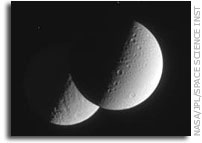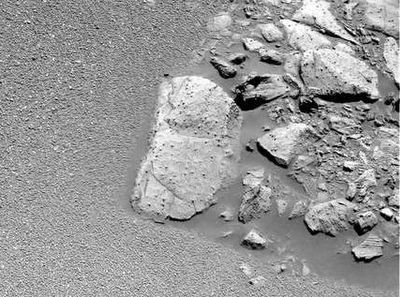I was just looking at a
blog created by a fellow member of the National Association of Science Writers, Joel Shurkin, that deals with science journalism. He commented on the recent story that ran on the Space.com website, claiming an exclusive account that NASA scientists had submitted a scientific paper claiming there is life on Mars today. Most of the specifics of the story have been vigorously denied by all parties concerned, and NASA went so far as to take the unusual step of issuing a press release to rebut the story.
I do think the Space.com story crossed a few journalistic lines, including portraying a private dinner as a quasi-official meeting, and making clearly wrong claims about what the scientists said. One unfortunate consequence of that is that Carol Stoker and Larry Lemke's very interesting work at Rio Tinto, Spain, the subject of the dinner-party leak, has gotten an undeserved black eye.
Anyway, jogged by the mention in Shurkin's blog, I just went to check, and the story has now been removed from the space.com site altogether! Nothing shows up in a search at all. They also removed their story from the following day, a more legitimate story about Vittorio Formisano's claim to have identified formaldehyde in the Mars atmosphere, which he says is indicative of life.
(New Scientist's story on that, which I think got it right, is still available). A
subsequent story by space.com's Leonard David, a very good piece, appears to be the only thing on the subject still there.
Ah, but it's a bit trickier than that. It turns out the
story really is still there, as is a
followup by the original reporter, Brian Berger, that ran after NASA's denial came out. BUT, neither of these stories shows up if you do a search of Space.com for "Mars". That's strange.
It seems to me a little odd for a well-known website like space.com to remove two very high-profile stories, without comment or followup, from their searchable archive, as if they never happened. What do others think?



